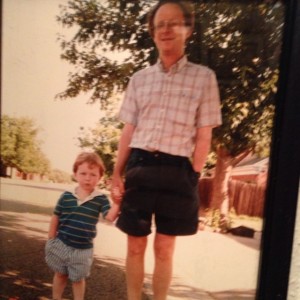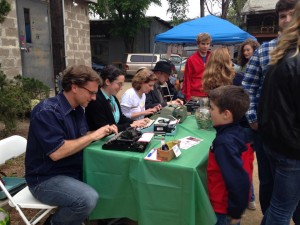1) These birthdays! They surprise me. Forty was fine. Turning 50 took me three years to acclimate to, at which point I was — obviously — 53. Sixty I hardly noticed.
Sixty-five, though, took me aback. For weeks, I’d been swamped with Medicare offers. My husband, who’s three months younger than I am and mentions it quite frequently, took to muttering, “How did we get to be this old?”
“I feel so eligible,” I told him. Eligible for government plans and social security and retirement, you name it, I qualified for it. “It’s an official age — kind of like turning 21.”
Except, of course, let’s get real. It’s not at all like turning 21.
Still, I did take one for the team and froze our property taxes.
2) I like math. Now, I keep doing the math and it’s unsettling.
In five years, I will be 70. In 15 years, 80. Hell, I’m almost two-thirds of the way to 100.
Juggling these digits in my mind. I am aware I need to unloose my death-grip on thinking I am middle-aged or even late middle-aged. I am young-old or old-young, depending on my mood.
3) “I thought I’d come to terms with aging,” my (younger) sister emailed me recently.
Oh, yeah, me, too. After all, I’ve been working on a book about women and aging (Pucker Up!: The Subversive Woman’s Guide to Aging with Wit, Wine, Drama, Humor, Perspective, and the Occasional Good Cry, which will be coming out in March 2015) with my friend Marian Henley.
I have insights! I never lie about my age! I can be funny about it! I’m facing reality!
Yes and no. The truth is, I have come to terms, sort of, with being 65, with no obvious disabilities, in apparent good health, in relative financial comfort. (Like most cancer survivors, I have been fooled in the past about my presumption of good health. It’s better to assume nothing.)
Change any of these circumstances — the age, the health, the general well-being, the good luck — and I’ll be clamped in fetal position, howling at the rafters. You only cede as much ground as you are forced to, only come to terms with aging when you have to — and then grudgingly. I wouldn’t call myself evolved on this subject, but i do try to be honest.
4) The older I get, the more aware I am of how well and comfortably I live. Outside of my safe and cosseted venues, the world seethes with hunger, disease, poverty, and unrest. You don’t have to cross oceans to find hopelessness and despair; you can find them within a few miles of my comfortable high-rise.
My husband and I give money to worthy causes. I have done volunteer work and will do more. We vote a liberal ticket. Our hearts, I like to think, are in the right place.
None of this is enough.
How do you justify your own good life in the midst of this world, where so many millions of children are born never having a chance? Tell me.
Or is wallowing in guilt the most self-indulgent of emotions, doing no good whatsoever, but somehow making me feel I’m a better person for it?
5) I’m not aging alone. I laugh and blubber and talk endlessly about it with my husband and friends.
But there are other presences I feel, too, that are silent and invisible. They’re the friends I’ve lost, most of them to cancer. They didn’t live long enough to sprout wattles or varicose veins, they were never old enough for Medicare or Social Security. Martha, Katherine, Kathleen, Donna, Cindy, Clare, Paula, Alice, and too many others — I’ve had the opportunity to age that they never had.
Good friends once, they’re the ones who speak to me as the years pass. They remind me aging is a privilege. Sure, I’ve had my heartaches and losses and arthritic joints, yeah, I’m slower than I used to be. But I’m still here, right?
Enjoy it, I imagine their telling me. Don’t take it for granted. And, oh, yeah, honey — don’t screw it up.
(Copyright 2014 by Ruth Pennebaker)
Read 60 Things About Turning 60, Part One and Part Two


















